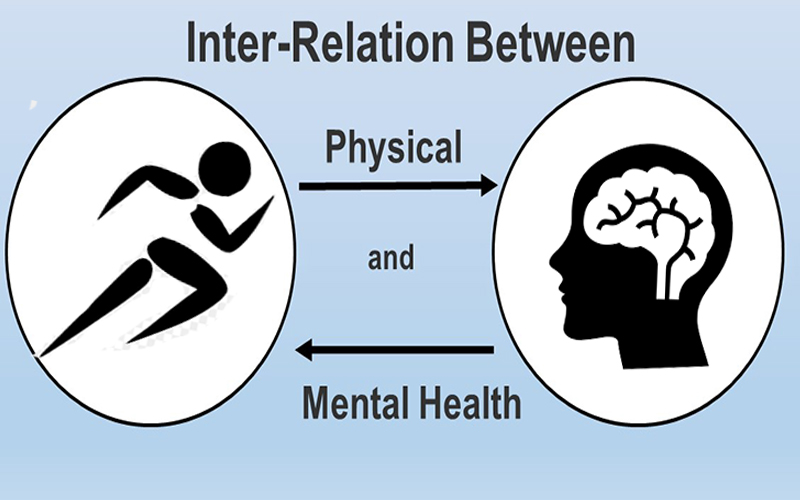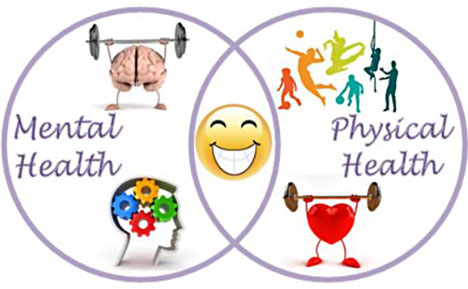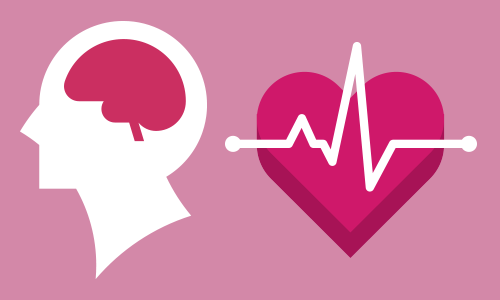Stress is a part of life that affects everyone. While some stress is necessary for survival, too much can lead to physical and mental health problems. This article explores the role of stress in affecting physical and mental health, including how it can impact the body and mind, and how to manage it. Learn how to identify and manage stress so you can stay healthy and happy.
Understanding Stress and Its Impact on Your Mental and Physical Health

Stress is a natural part of life, and it can have both positive and negative impacts on our mental and physical health. When we experience stress, our bodies respond in a variety of ways, releasing hormones like cortisol and adrenaline that can help us cope with difficult situations. However, when stress is experienced over long periods of time, it can cause significant damage to our mental and physical health. Prolonged stress can lead to anxiety, depression, and other mental health issues, as well as physical health issues such as headaches, chest pain, and even heart disease. It is important to understand the role of stress in our lives and take steps to reduce it. Finding healthy ways to manage stress, such as exercise, yoga, and meditation, can help us stay balanced and keep our mental and physical health in check. If you are struggling with stress, seeking help from a mental health professional can help you find a solution and reduce the negative impacts it has on your life.
How Stress Can Negatively Affect Your Physical and Mental Health

Stress can have a serious impact on your physical and mental health, with both short-term and long-term effects. In the short-term, stress can cause headaches, muscle tension, and fatigue. It can also lead to changes in your blood pressure, heart rate, and breathing. Long-term, stress can lead to serious health issues like high blood pressure, heart disease, and depression. Stress can also lead to unhealthy behaviors like smoking and alcohol abuse, which can further damage your physical and mental health. It’s important to take steps to reduce stress in your life and maintain a healthy lifestyle. This can include making time for relaxation, engaging in regular physical activity, and eating a balanced diet. Practicing mindfulness, getting enough sleep, and talking to a mental health professional can also help you to manage stress.
How to Manage Stress to Improve Your Physical and Mental Health

Managing stress is essential to improving physical and mental health. There are many different ways to manage stress, and it’s important to find the approach that works best for you. One of the most popular stress-management techniques is mindfulness meditation. Mindfulness meditation helps to quiet your mind, allowing you to gain insight into your emotions and reactions. Other techniques such as yoga, tai chi, and deep breathing can also be helpful for stress management. Additionally, regular exercise can help to release endorphins, which can help to reduce stress levels. Nutrition can also play a role in managing stress, so a balanced diet of fruits and vegetables is important. It’s important to remember to take time for yourself to relax and unwind. Taking time out of your day to read a book, listen to music, or take a walk can help to clear your mind and reduce stress. Finally, talking to a trusted friend or family member can help to put things into perspective. Everyone experiences stress differently, so the key is to find the techniques that work for you. With the right techniques and self-care, it is possible to manage stress and improve your physical and mental health.
Identifying Signs of Stress and Taking Action to Address It

Identifying signs of stress is an important first step in addressing it. Signs can vary from person to person, but common physical and emotional signs of stress include headaches, fatigue, muscle tension, irritability, and difficulty sleeping. If you’re experiencing any of these signs, it’s important to take action to address the underlying cause of your stress. Taking action can include talking to a mental health professional, engaging in activities to reduce stress, and making lifestyle changes such as sticking to a healthy diet and getting regular exercise. Additionally, practicing mindfulness activities and engaging in regular relaxation techniques such as yoga or meditation can be helpful in managing stress. Asking for help from a friend or family member can also be beneficial in reducing stress. By recognizing the signs of stress and taking action to address it, you can help reduce its impact on your physical and mental health.
Strategies for Reducing Stress and Improving Your Mental and Physical Health

If you want to reduce stress and improve your mental and physical health, meditation is a great option. Meditation can help you relax and clear your mind, which can help lower anxiety and stress levels. Additionally, meditation can improve your focus and concentration, which can help you become more productive and efficient. It can also help reduce feelings of depression and improve your overall sense of well-being. Additionally, practicing yoga or other forms of physical activity can help reduce stress and improve your mental and physical health. Exercise can help boost your mood and provide a healthy outlet for releasing stress. Additionally, getting enough sleep is essential for reducing stress and improving your physical and mental health. Make sure to get enough restful sleep each night and avoid activities that can disrupt your sleep, such as drinking caffeine late in the day or using electronic devices before bed.




